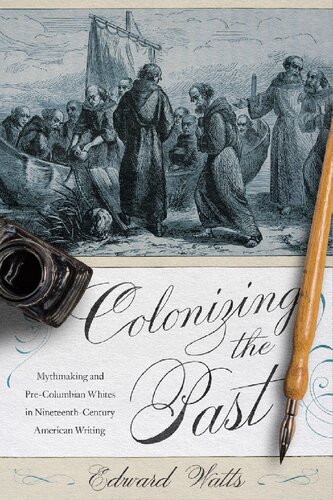

Most ebook files are in PDF format, so you can easily read them using various software such as Foxit Reader or directly on the Google Chrome browser.
Some ebook files are released by publishers in other formats such as .awz, .mobi, .epub, .fb2, etc. You may need to install specific software to read these formats on mobile/PC, such as Calibre.
Please read the tutorial at this link: https://ebookbell.com/faq
We offer FREE conversion to the popular formats you request; however, this may take some time. Therefore, right after payment, please email us, and we will try to provide the service as quickly as possible.
For some exceptional file formats or broken links (if any), please refrain from opening any disputes. Instead, email us first, and we will try to assist within a maximum of 6 hours.
EbookBell Team

0.0
0 reviewsAfter the Revolution, Americans realized they lacked the common, deep, or meaningful history that might bind together their loose confederation of former colonies into a genuine nation. They had been conquerors yet colonials, now politically independent yet culturally subordinate to European history and traditions. To resolve these paradoxes, some early republic "historians" went so far as to reconstruct pre-Columbian, transatlantic adventures by white people that might be employed to assert their rights and ennoble their identities as Americans.
In Colonizing the Past, Edward Watts labels this impulse "primordialism" and reveals its consistent presence over the span of nineteenth-century American print culture. In dozens of texts, Watts tracks episodes in which varying accounts of pre-Columbian whites attracted widespread attention: the Welsh Indians, the Lost Tribes of Israel, the white Mound Builders, and the Vikings, as well as two ancient Irish interventions. In each instance, public interest was ignited when representations of the group in question became enmeshed in concurrent conversations about the nation's evolving identity and policies. Yet at every turn, counternarratives and public resistance challenged both the plausibility of the pre-Columbian whites and the colonialist symbolism that had been evoked to create a sense of American identity. By challenging the rhetoric of primordialism and empire building, dissenting writers from Washington Irving to Mark Twain exposed the crimes of conquest and white Americans' marginality as ex-colonials.